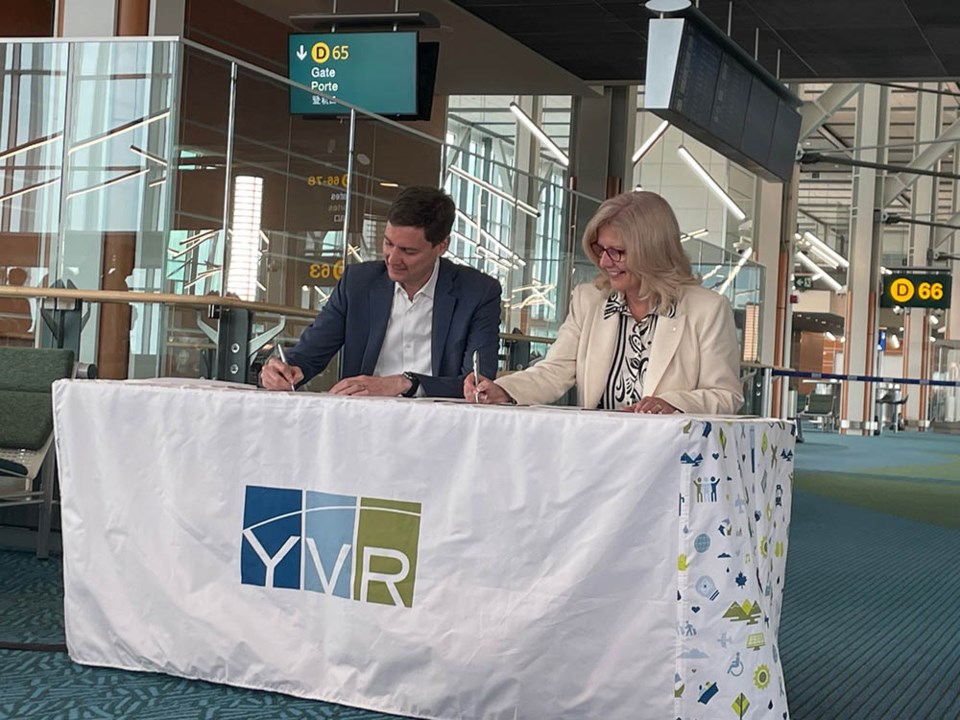Electric or battery-powered barges moving goods from the airport up the Fraser River is one long-term idea YVR has to reduce truck congestion.
After the airport decided it would no longer pursue a third runway option – for which land has been reserved for decades – they started rethinking how the land could be used.
One idea is to have cargo unloaded onto barges, powered by electricity or batteries, and moved up the river to be off-loaded, instead of being loaded onto trucks at YVR, thereby reducing congestion in the Lower Mainland, explained YVR CEO Tamara Vrooman.
She said YVR is in the “very early stages” of figuring out how it could become of the first air-to-marine terminal with cargo going straight onto barges that continue on the ocean or along the river.
She noted Europe already has electric and battery-operated barges delivering goods along canals and rivers.
Furthermore, YVR is looking at how smaller airports, such as Pitt Meadows and Abbotsford airports, could become part of this multi-modal transportation that would take more congestion off the roads.
“We’re quite excited about opportunities we can work with the Ministry of Transportation (on) to understand where those multi-modal pathways may exist and where we can use our significant competitive advantage here on the west coast to be a fully accessible, multi-modal trading hub,” Vrooman said.
$800K for airport sustainability projects
Vrooman alluded to this future possibility at a press conference on March 21 where the province was announcing $800,000 for various sustainability projects.
The $800,000 is earmarked to study new sustainable fuel, to help other B.C. airports become carbon neutral and to improve the movement of people and goods.
In addition to the funding announcement, Premier David Eby and Vrooman signed a memorandum of understanding to advance B.C.’s aerospace, aviation and logistics sector.
YVR set a goal of being a net-zero airport by 2030, and funding from the provincial government of $350,000 will be for a study to help all airports in B.C. achieve the same goal.
This project will be overseen by YVR.
A grant of $250,000 will be to study sustainable aviation fuel.
Vrooman said this will not be plant-based sustainable fuel – which can draw from food supplies – rather it will focus on such biofuels as meat and tallow and wood waste. The latter, however, is “a ways off” but something the airport authority wants to explore, she added.
“Our province (has a) rich history of forestry and sustainable forestry, how can we use wood waste – we have a natural competitive advantage,” Vrooman said.
Got an opinion on this story or any others in Richmond? Send us a letter or email your thoughts or story tips to [email protected]. To stay updated on Richmond news, sign up for our daily headline newsletter.


